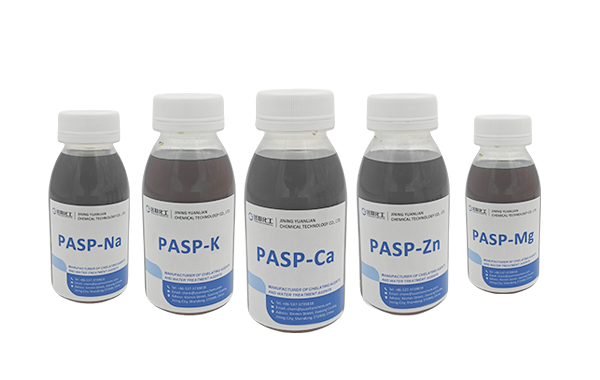
Polyaspartic Acid for Root Development: Enhancing Sustainable Agriculture in Europe
In today's evolving agricultural landscape, polyaspartic acid (PASP) stands out as an innovative biostimulant that significantly enhances root system development while supporting environmental sustainability. As European farmers seek solutions that align with the EU's Green Deal objectives, this biodegradable polymer offers a scientifically-proven approach to improving crop performance naturally.
Understanding Polyaspartic Acid's Root Enhancement Mechanism
Polyaspartic acid is a water-soluble, biodegradable polymer of aspartic acid that mirrors natural amino acid structures. Its molecular composition features multiple carboxyl groups that chelate nutrients, making them more available to plants while stimulating root growth at the cellular level.
Key mechanisms of action include:
-
Activation of root growth genes and stimulation of root tip cell division
-
Enhanced nutrient availability through chelation of soil minerals
-
Improved soil structure and nutrient mobility
-
Increased root surface area and density for better nutrient uptake
Research indicates that medium molecular weight PASP (3-5 kDa) demonstrates optimal effectiveness for most European crops, including wheat, maize, and horticultural productions.
Documented Benefits for European Farming Conditions
Superior Root Development
Field trials across European agricultural stations have consistently shown that polyaspartic acid treatment increases root biomass by 18-25% compared to untreated plants. This enhanced root architecture translates to better drought resistance and nutrient efficiency - critical advantages in changing climatic conditions.
Nutrient Use Efficiency
PASP significantly improves nitrogen use efficiency (NUE) by 15-30%, supporting the European Union's efforts to reduce fertilizer pollution while maintaining crop productivity. This makes it particularly valuable in nitrate-vulnerable zones and regions implementing the Farm to Fork strategy.
Environmental Stress Mitigation
European crops treated with polyaspartic acid demonstrate enhanced resilience to abiotic stresses including drought, salinity, and temperature extremes. The biostimulant activates plant defense mechanisms, resulting in more stable yields under variable growing conditions.
Yuanlian Chemical: Quality Polyaspartic Acid Solutions for European Agriculture
Yuanlian Chemical manufactures high-purity polyaspartic acid products that meet stringent European quality standards. Their PASP series includes both liquid formulations (40% concentration) and solid powder (96% purity), providing flexibility for various application methods and farming systems.

The company's production processes emphasize environmental responsibility, ensuring products align with Europe's sustainability objectives while delivering consistent performance across diverse agricultural conditions.
Practical Application Guidelines for European Farmers
Optimal Application Methods
-
Seed treatment: Enhance early root development with 0.5-1% PASP solutions
-
Soil application: Apply 2-5 kg/hectare with base fertilizers
-
Foliar application: Use 0.1-0.5% solutions during critical growth stages
-
Fertigation: Incorporate into existing irrigation systems for efficient delivery
Crop-Specific Recommendations
-
Cereals: Apply during tillering and stem elongation phases
-
Vegetables: Use at transplantation and during rapid growth periods
-
Fruit crops: Apply during bud break and fruit set stages
-
Vineyards: Implement during early season growth and veraison
Integration with Sustainable Practices
Polyaspartic acid complements integrated pest management, conservation agriculture, and organic farming approaches increasingly adopted across Europe. Its biodegradable nature ensures no harmful environmental persistence.
Economic and Environmental Benefits for European Agriculture
The adoption of polyaspartic acid technology supports both profitability and sustainability in European farming:
Economic Advantages
-
Yield increases of 10-20% across multiple crop types
-
Reduced fertilizer requirements (15-30% reduction possible)
-
Improved crop quality and marketable yield
-
Better ROI compared to conventional approaches
Environmental Benefits
-
Lower nitrate leaching into groundwater
-
Reduced greenhouse gas emissions from fertilizer production and application
-
Enhanced soil health and microbial activity
-
Support for biodiversity through reduced chemical inputs
Future Outlook in European Agriculture
As the European Union continues implementing its Farm to Fork and Biodiversity strategies, polyaspartic acid represents exactly the type of innovation that can help farmers meet both production and sustainability targets. With proven efficacy and environmental safety, PASP is positioned for increased adoption across the continent's diverse agricultural systems.
Yuanlian Chemical continues to invest in research and development tailored to European growing conditions, ensuring their polyaspartic acid products deliver optimal results while supporting the region's commitment to sustainable agriculture.
Yuanlian Chemical specializes in the production of polyaspartic acid (PASP),tetrasodium iminodisuccinate(IDS), GLDA, MGDA etc. with stable quality and excellent quantity!





Contact us